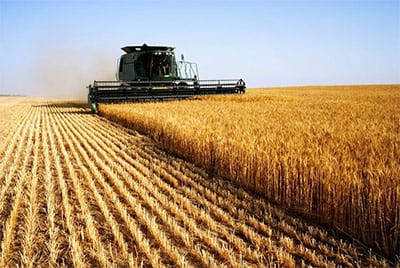The food and agriculture sector is expected to provide healthy, safe and nutritious food for a growing population, whilst simultaneously supplying feed for ever more farm animals, as well as providing fibre and fuel and other bio-based products for a range of industrial uses
The sector must also use natural resources more sustainably in order to preserve available land, water, and biodiversity resources, and to respond to climate change. In order to meet these challenges and respond to opportunities, the sector will need to embrace innovative approaches that improve productivity in a sustainable manner.
The most comprehensive productivity indicator is Total Factor Productivity (TFP), which reflects the efficiency with which producers combine inputs to create outputs. Productivity improvements over recent decades have driven considerable growth in agricultural production, though there are major differences in the level of productivity growth between countries, and by farm type, size and region, as illustrated in the OECD’s recent farm-level analyses. Productivity gaps between farms remain, and improving the productivity of farms that lag behind continues to be a challenge even for countries that perform strongly.
Agri-environmental issues also vary in scope and severity in the countries studied by the OECD. Like physical capital, natural (environmental) capital requires investment and maintenance in order to retain its productive capacity. For agriculture, this encompasses managing natural resources to ensure their long-term viability and reduce the negative environmental impacts of agriculture production, such as pollutants and waste, which can damage natural assets. Sustainable agriculture production systems also need to account for the projected impacts of climate change and associated adaptation responses, as well as the mitigation of greenhouse gas (GHG) emissions.
To help measure the sustainability of agriculture, the OECD’s agri-environmental indicators monitor trends in the use of land, water and energy, as well as agriculture’s impact on the environment, via the intensity of use of polluting inputs (pesticides) and the sector’s emission of pollutants (GHG, ammonia).
The adoption of innovation is the main driver of productivity growth, and can improve sustainability.
Many innovations at the level of individual farms are “process innovations”, as they relate to improving production techniques, such as, for example, by adopting improved seeds or irrigation systems. Downstream industries also innovate new and improved products, such as functional attributes for food (health) or in the chemical or pharmaceutical industry (bio-economy). Marketing and organisational innovations are increasingly important throughout the entire supply chain.
The most comprehensive productivity indicator is Total Factor Productivity (TFP), which reflects the efficiency with which producers combine inputs to create outputs
The OECD’s work on innovation systems in food and agriculture explores relationships between innovation, productivity and sustainability, and examines the respective roles of the government and the private sector in strengthening agricultural innovation systems and facilitating the adoption of more innovative practices at the level of individual farms and agri-food firms. As part of this work, the OECD has developed a framework to review the impacts of a wide range of policies on the creation and adoption of innovations needed to increase productivity and sustainability in food and agriculture, leading to concrete recommendations for each policy area.
What can policymakers do?
The future of food and agriculture depends on the capacity of agricultural innovation systems to provide farmers with innovations that address an increasingly diverse and complex range of needs, including improved farm productivity and environmental performance, but also better responses to climate change.
 Governments have a role to play in ensuring that the policy environment is conducive to improving the productivity, sustainability and resilience of the agri-food sector. OECD research shows that the whole policy package matters, and that policy strategies should cover the whole food supply chain: improving policy coherence and transparency are crucial to building trust and increasing effectiveness and efficiency. The first step to improving the policy environment is to roll back policies that hold farmers in uncompetitive and low-income activities, harm the environment, stifle innovation, slow down structural and generational change, and weaken resilience.
Governments have a role to play in ensuring that the policy environment is conducive to improving the productivity, sustainability and resilience of the agri-food sector. OECD research shows that the whole policy package matters, and that policy strategies should cover the whole food supply chain: improving policy coherence and transparency are crucial to building trust and increasing effectiveness and efficiency. The first step to improving the policy environment is to roll back policies that hold farmers in uncompetitive and low-income activities, harm the environment, stifle innovation, slow down structural and generational change, and weaken resilience.
Agricultural policy should instead focus on measures to improve the sector’s longterm productivity and sustainability, such as investments in general services that strengthen human and infrastructure capacities, and farmers’ connection to input and output markets. There must also be a business case ‘from farm to fork’ for producers to innovate and improve productivity and environmental performance. Well-functioning markets and a sound regulatory and policy environment are key to harnessing these market opportunities.
In particular, governments should strengthen agricultural innovation systems to make them more collaborative and responsive to needs, which would increase the impact of public expenditure. Improving the relevance of innovations would also increase adoption within the sector and acceptance by society. Governance is the key to such improvements, which would include the forming of clear strategic objectives in consultation with stakeholders, as well as comprehensive mechanisms and procedures for evaluation. Finally, attention needs to be paid to adoption, including in the improvement of skills.